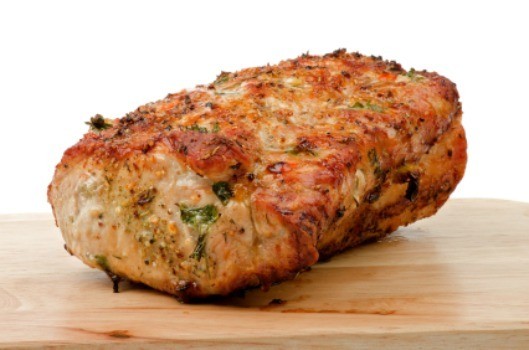Boiled eggs are a common breakfast food for many people around the world. They are delicious, filling and easy to prepare. However, boiling eggs can occasionally lead to an explosive situation in the kitchen. Have you ever wondered why this happens? In this article, we’ll explore the science behind egg boiling and why they explode under certain conditions. We’ll also look at ways to prevent explosions and other methods of cooking eggs.
The Science Behind Egg Boiling
To understand why eggs explode when boiled, it’s important to know a little about their physical and chemical properties. Eggs contain two main types of proteins: globular proteins, which are dispersed throughout the egg white and yolk; and fibrous proteins that form networks around the yolk. When heated, these proteins interact to produce different textures and colors.
However, as the egg heats up, the increased temperature leads to protein denaturation – where proteins lose their structure – causing coagulation (solidifying) of the egg contents. Heat causes changes in protein bonds that cause them to become “tangled,” effectively creating a new three-dimensional structure.
As heat is applied (by immersing an egg into hot water), steam pressure builds up inside the shell as water turns into vapor. If this pressure goes beyond what an eggshell can handle due to internal cracks or weaknesses in its structure, it will lead to an explosion.
Factors That Affect Egg Explosions
Several factors contribute to exploding eggs when boiled. For instance:
- Age: Older eggs have thinner shells due to moisture loss over time making them more susceptible
- Freshness: Freshly laid eggs tend not be impacted by heat as much as older ones because cold storage preserves their quality for longer periods.
- Temperature: Rapid heating (immersion right away after adding them in pan/pot) tends to expose fragile spots leading explosions.
- Altitude: Water boils at lower temperatures at higher altitudes, affecting the pressure buildup inside an egg.
How to Prevent Exploding Eggs
Thankfully, there are several tips for reducing the risk of egg explosions while boiling them:
- Room Temperature is Key: Take eggs out of the fridge at least one hour before boiling. Cold eggs that touch hot water can crack easily, leading to explosions.
- Prick Holes in Eggshell: Prior to boiling, it helps to prick small holes (e.g., with a pin) around the wider end of each eggshell. The tiny holes release air and minimize pressure buildup that causes explosions within the shells.
- Use Warm Water: Starting with warm water instead of hot can mitigate thermal shock & stress-induced cracking during boiling.
- Lower Boiling Temperature: Avoid boiling water when placing eggs into it (just as it starts bubbling). Instead bring a pot of water to boil first, then place eggs into it gently at reduced temperature and reduce stove heat slightly leaving room for pressure buildup.
Other Ways to Cook Eggs
Boiling isn’t the only way to cook eggs; there are several other methods you could try:
Poaching
Poaching entails cooking an egg in simmering water without its shell. With this method, you just need a pan with enough water for poaching the number of eggs required and vinegar added in equal amounts (around 1-2 cups per cup of liquid) help keep whites coagulated.
Baking
If you’re looking for a hands-off approach, baking is another great alternative than boiling your egg! Place individual shells or whipped-up scrambled eggs into greased muffin pans and bake at low heat.
Frying
Fried eggs come in different forms depending on preferences such as sunny-side up vs over-easy etc., but all involve cooking eggs directly on heat sources such as griddles or stovetops with some fat like oil or butter.
What To Do If An Egg Explodes
It’s essential to take precautions when dealing with exploding eggs in the kitchen. Here are some steps to take:
- Under no circumstance should you attempt to pick up or touch a freshly exploded egg. It can cause burns from hot water/yolk splattering.
- For any eggs that did not explode, check for cracks or fracture marks on their shell surfaces. Discard those whose shells appear damaged.
- Clean up any mess resulting from the explosion immediately after it happens because it could be messy and hard to clean when dried off.
Conclusion
In conclusion, boiling an egg is not quite as simple as it may seem, and explosions can happen for various reasons. However, with these tips in mind (piercing the eggshell beforehand, using warm water instead of boiling water), your breakfast will always be perfect!
Remember that there are several alternative cooking methods available, including poaching, baking and frying if boiling becomes too risky for you.
By following safe practices (e.g., avoiding contact with hot fragments & regularly cleaning up your kitchen) during such mishaps and in general around boiled eggs, you can prevent most potential problems and enjoy this delicious breakfast staple!
Q&A
- Q: Why do eggs explode when boiling? A: Eggs can explode when boiling due to the buildup of pressure inside the egg. When heated, the egg’s contents expand and pressure begins to increase within its shell. If this pressure becomes too much for the eggshell to handle, it may crack or even explode.
- Q: Can I prevent eggs from exploding? A: Yes, there are a few ways to prevent eggs from exploding while boiling them. The first is to prick a small hole in the top of each raw egg with a pin or needle before boiling. This will allow steam to escape and relieve any excess pressure that may build up in the egg during cooking. Another method is to lower the eggs into already simmering water instead of bringing cold water with eggs to boil, which will avoid temperature shock.
- Q: Does the age of an egg affect its likelihood of exploding? A: Yes, older eggs are more likely to explode when boiled than fresh eggs because as an egg ages, air pockets develop inside its shell which increases gas production and thus internal pressure during heating.
- Q: Are there any other factors that contribute to boiled egg explosions? A: Yes, overcooking an egg beyond its recommended cooking time or overheating it on high heat can also lead to explosions as what happens is that no matter how many steam vent holes are in your pot lid hot steam creates more quickly than space allows it dispersing into upper direction while exerting explosive force on poor surface area hardly tolerating such violence so you should never try using too-high flame settings or turning heat OFF all at once!




